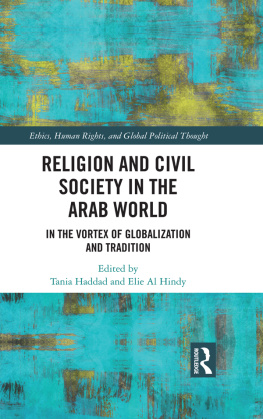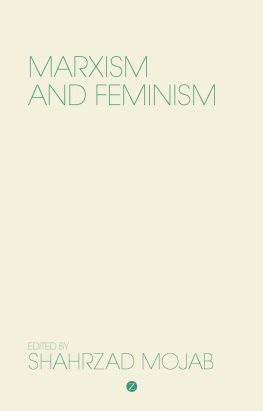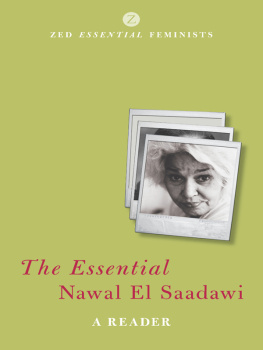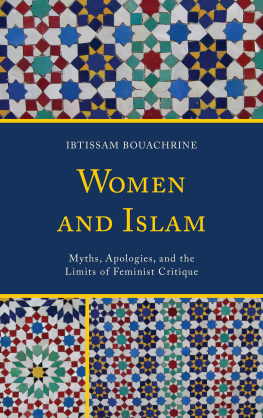First English edition published in 2019 by
Gingko
4 Molasses Row
London SW11 3ux
First published in the Arabic by Masr El Arabiya in 2018.
Copyright Masr El Arabia for Publishing and Distribution 2019
English translation copyright Nariman Youssef 2019
The rights of Nawal El Saadawi to be identified as the author of this work have been asserted in accordance with Copyright, Designs and Patent Act 1988.
A CIP catalogue record for this book is available from the British Library.
All rights reserved. Except for brief quotations in a review, no part of this book may be reproduced in any form or by any electronic or mechanical means, including information storage and retrieval systems, without written permission from the publisher.
ISBN 978-1-909942-43-1
e-ISBN 978-1-909942-44-8
Typeset in Minion Pro by MacGuru Ltd
Printed in the United Kingdom
www.gingko.org.uk
The opinions expressed in this volume are those of the author and do not necessarily reflect those of the Gingko Library.
Publishers Note
She has been called the Simone de Beauvoir of the Arab World: Nawal El Saadawi public health physician, psychiatrist, author and advocate of womens rights.
Born in Kafr Tahlah, Egypt, on 27 October 1931, Dr Saadawi has fought all her life for women to be accorded rights over their own bodies. She has campaigned against the brutal harm caused by FGM, fought for a womans right to pass on her name to her child, and has tirelessly stood up for womens rights in divorce, property and inheritance cases. For her beliefs and endeavours Nawal El Saadawi has endured imprisonment and exile. Her publications have brought her acclaim and criticism in equal measure. She stood as a presidential candidate at an age when others might consider retirement. At a time when nobody was talking, Margaret Atwood said when interviewed for BBC Imagine, [El Saadawi] spoke the unspeakable.
Dr Saadawi has never shied away from controversy. In 1968, she founded Health magazine and a year later published Al-marah wa al-jins (Women and Sex), for which she was expelled from her position at the Ministry of Health. In 1981, she was imprisoned for her involvement with the feminist magazine Confrontation. In 1982, El Saadawi founded the Arab Womens Solidarity Association (AWSA) and later served as editor of the organisations publication, Nun. The Egyptian government closed down the magazine and the organisation barely ten years after its foundation. Undeterred, El Saadawi continued her work, publishing and protesting, facing legal challenges from political and religious opponents and, eventually, exile. In 2002, a fundamentalist lawyer tried to forcibly divorce her from her husband. In May 2008 she won a case brought against her by Al-Azhar University that included charges of apostasy and heresy.
By publishing Off Limits, Gingko presents the reader with an original voice, raw and unfiltered, and a powerful representation of feminism in the Middle East. This is Nawal El Saawadis in her own words: translated, but not adapted or expurgated to comfort a Western audience; not smoothed over to avoid sensitivities; not explained nor excused in order not to ruffle feathers.
A WOMANS VOICE IS REVOLUTION! Dr Saadawi writes in this book. Listen to her voice and you will find that it will move and unsettle you, but never fail to challenge.
Gravity and the Forbidden Apple
When I was a child, I used to gaze at the sky like perhaps all children do and ask my mum and dad: Where do the moon and the sun and the stars come from? I assumed the earth was flat and immobile, then I learned it was shaped like a ball, spinning in space. And I wondered why was it that, if the earth was spinning, I didnt feel it move at all.
When I got a bit older, other questions started to occupy my mind: Why does the earth orbit the sun and not the other way around? How does the moon stay suspended in space while orbiting the earth and is not pulled towards the earth by gravity? Most answers I received did more to obscure than to illuminate: Its just how things are; This is how God made the world; and Its natures way.
But Isaac Newton has formulated the law of universal gravitation, with which his name is forever linked, as follows: Every object attracts every other object in the universe with a force directly proportional to the product of their masses and inversely proportional to the square of the distance between their centres. That is, the higher the masses of two bodies, the stronger their attraction towards one another, and the higher the distance between them, the weaker the attraction. So that, given the same distance, the attraction between two elephants is stronger than the attraction between two rats.
Any living body or physical mass has the potential to attract the earth, the sun, the moon, the stars and all the planets.
So does gravity occur among animate physical bodies alone? Is there no attraction between inert objects?
A piece of rock for instance? A piece of rock isnt dead; it is part of the earth, and the earth is a living planet that pivots on its axis and orbits the sun.
And what about attraction between people? Friendship, love or hatred? Why does a person become attracted to another person specifically among all the others? Could it be because of the gravity between two souls?
Humans struggle against the forces that surround them and which pull them towards this way and that. Among these forces are the gravity of the earth and the pressure of the air, their own body mass or weight. A human being is just another mass like all the rival living bodies floating across the boundless universe.
Why doesnt the moon fall to the earth like an apple from a tree? Because the force of the suns gravity is greater than that of the earth, which keeps the moon moving in the suns orbit as well, living in suspension between the sun and the earth, like the other planets and satellites that orbit the sun. Newton once said that we live on the earth adrift in the boundless universe.
Is it just the earth that is adrift in the boundless universe? Isnt the moon also lost between the different forces that attract it? As are the sun and the stars and all the planets turning on their axis and orbiting the more powerful planets?
And when it comes to humankind, do not the weaker move in the orbit of the stronger? Could the same not be said of countries too, with the smaller states orbiting the bigger and the more powerful?
What does power mean in this context? Military power? Money, authority, physical strength?
Some scholars imagine that life (or the soul) can live beyond the death of the body and continue to have its own force or gravity. Newton believed in the existence of a soul independent of the body. He further believed that the new laws of physics were proof of the existence and omnipotence of God. Newton, like some other eighteenth-century scientists, had religious beliefs.
In the twenty-first century, most scientists have returned to Democrituss old theory which considers matter as the origin of the universe. Everything is composed of atoms that are constantly diverging and converging. The philosophical debate rages to this day.











